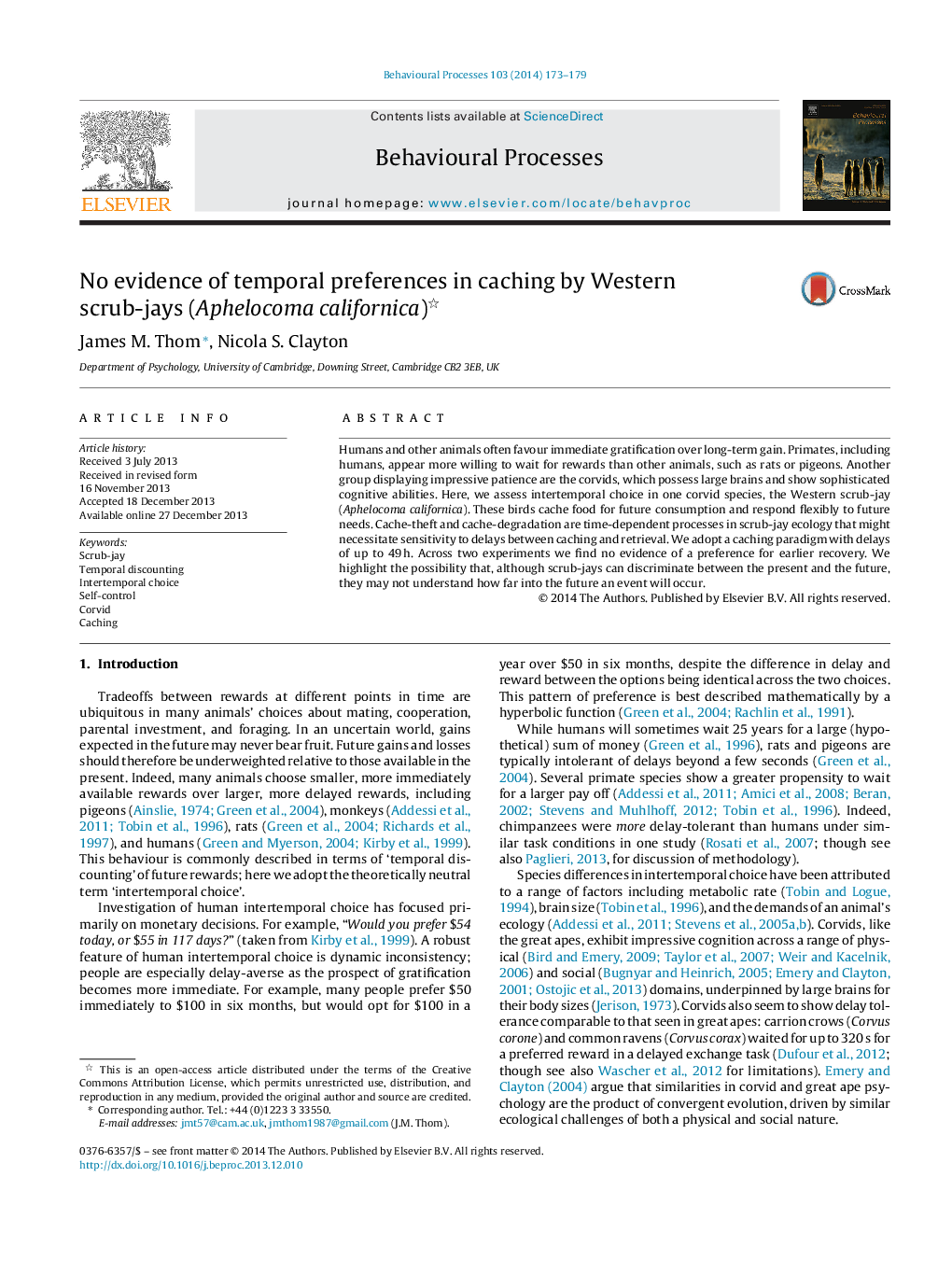| Article ID | Journal | Published Year | Pages | File Type |
|---|---|---|---|---|
| 8497326 | Behavioural Processes | 2014 | 7 Pages |
Abstract
Humans and other animals often favour immediate gratification over long-term gain. Primates, including humans, appear more willing to wait for rewards than other animals, such as rats or pigeons. Another group displaying impressive patience are the corvids, which possess large brains and show sophisticated cognitive abilities. Here, we assess intertemporal choice in one corvid species, the Western scrub-jay (Aphelocoma californica). These birds cache food for future consumption and respond flexibly to future needs. Cache-theft and cache-degradation are time-dependent processes in scrub-jay ecology that might necessitate sensitivity to delays between caching and retrieval. We adopt a caching paradigm with delays of up to 49Â h. Across two experiments we find no evidence of a preference for earlier recovery. We highlight the possibility that, although scrub-jays can discriminate between the present and the future, they may not understand how far into the future an event will occur.
Related Topics
Life Sciences
Agricultural and Biological Sciences
Animal Science and Zoology
Authors
James M. Thom, Nicola S. Clayton,
